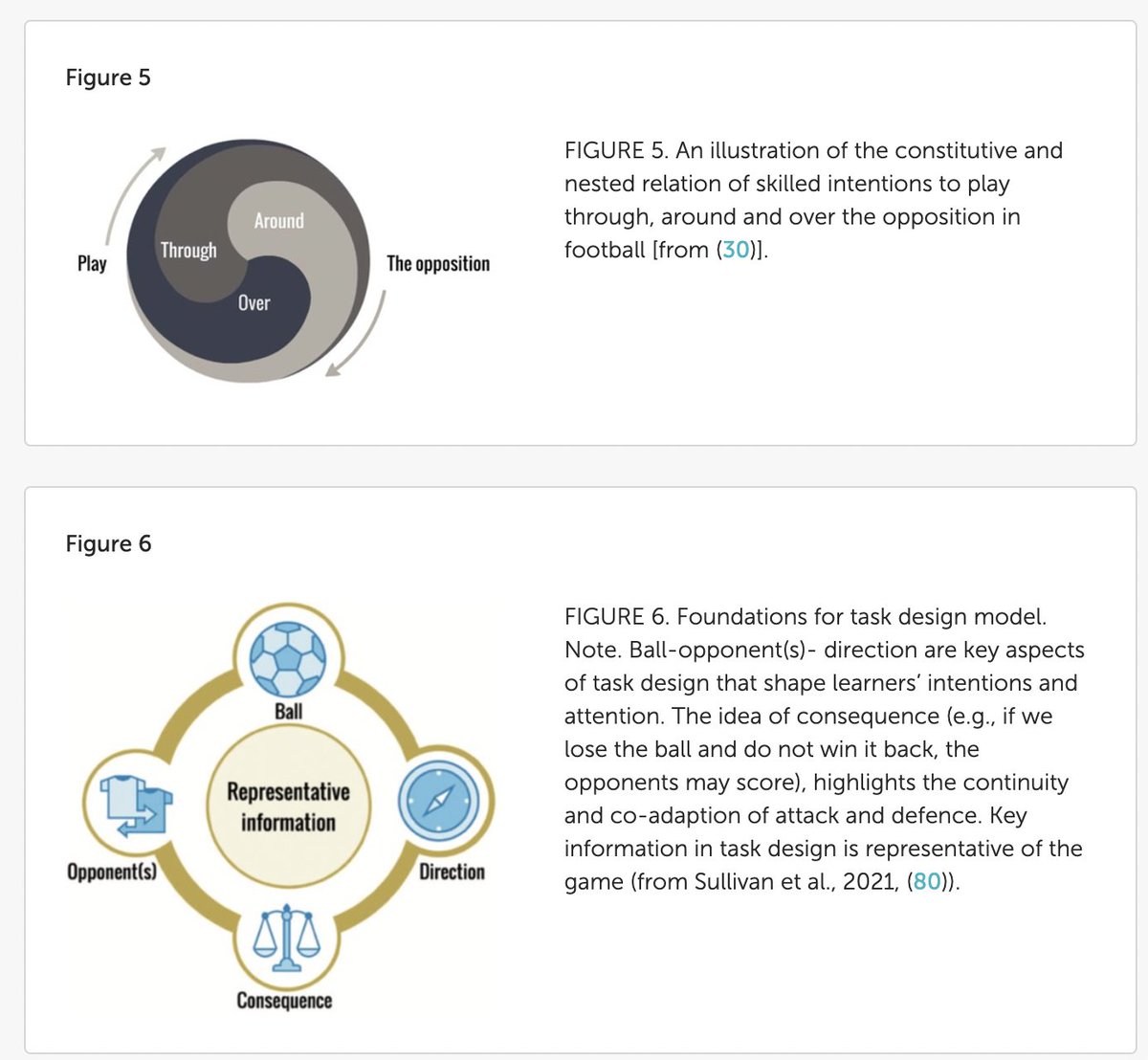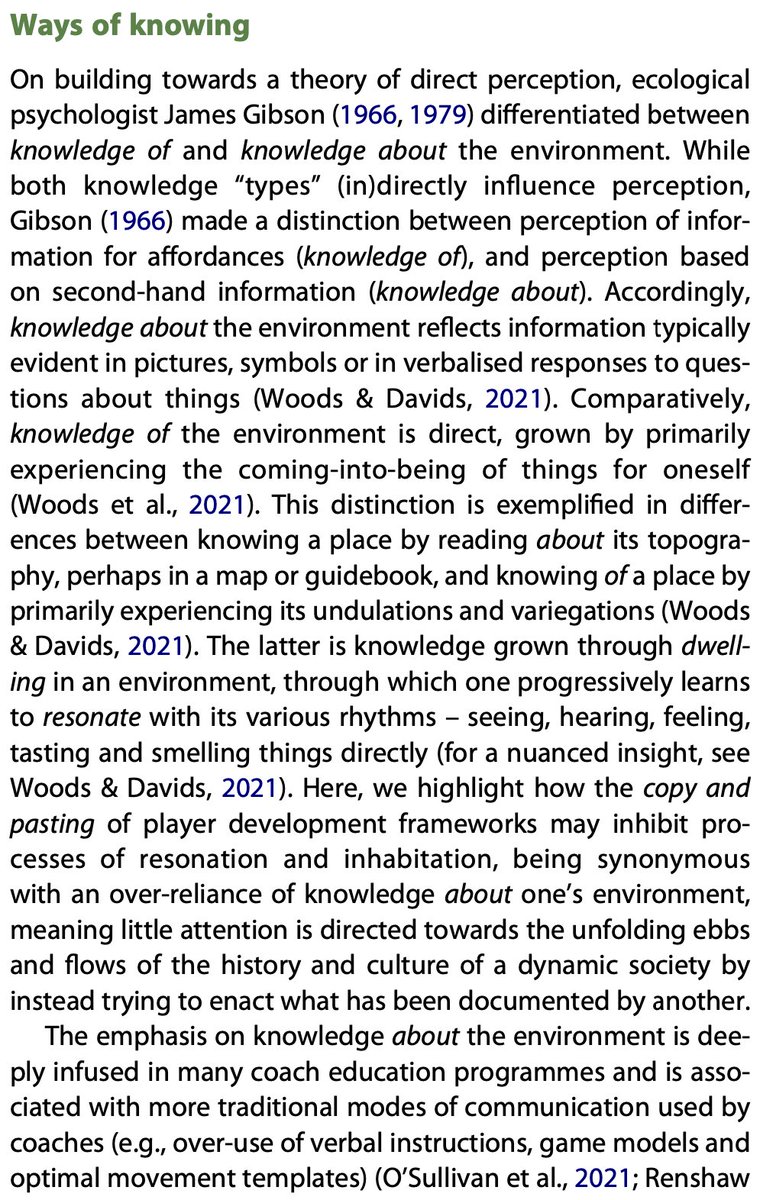1. Our article “There is no copy and paste… Integrating a contemporary player development framework in football ” recently came out in @JSportsSci @CarlWoods25 @JimiVaughan Keith Davids-cameo by @Fannberg + @stirling_j @Jozsef_Bozsik @sidlowe @jonawils tandfonline.com/doi/full/10.10…
2. Socio-cultural factors (constraints) influence practices in ways that differ from context to context, as societies influence, define and engage in sport in varying ways.
3. These interconnected environmental constraints (sociocultural, political,historical) play an important role in shaping intentions of coaches and players- the way coaches are trained (e.g., coach education) to design practice and how athletes engage with performance contexts.
4. This highlights how different systems and unique socio-cultural constraints can reinforce issues associated with trying to “copy and paste” athlete development frameworks from other organisations (clubs), countries, or societies. We provide numerous examples.
5. Considering this problematic tendency, it is worth noting a case in point about the adoption of our recently proposed Contemporary Player Learning in Development Framework -including the notion of shaping skilled intentions
journals.sagepub.com/doi/10.1177/17…


journals.sagepub.com/doi/10.1177/17…


6. These ideas emerge from a research-based ontology of football, skill-learning and human development
See here:
See here:
See here: journals.sagepub.com/doi/10.1177/17…
frontiersin.org/articles/10.33…
frontiersin.org/articles/10.33…
See here:
See here:
See here: journals.sagepub.com/doi/10.1177/17…
frontiersin.org/articles/10.33…
frontiersin.org/articles/10.33…
7. Embedded here is the appreciation that training sessions do not take place in a socio-cultural-historical vacuum but are deeply entangled within meaningful contexts of a broader societal form of life (normative ways of being, values, traditions).There is no copy-paste template
8. We aim to: (1) push against the potentially distracting and even detrimental copy and paste culture and (2), provide a rationale to guide the design and integration of contemporary player development frameworks by learning to resonate with the complexities of contexts
9. First, we propose that pervasive cultures of “copy and paste” are entangled in assumptions originally revealed in practices anchored to ways of knowing that tend to disregard the contingencies of context and the layered, nested complexities of the environment
10. Ways of knowing: We use Gibson’s differentiation between knowledge about(second-hand knowledge, top-down game model, over use of verbal instructions, optimal movement templates) and knowledge of (primary “IN” game experience). 

11. We also highlight how this (copy-paste) is connected to a recent worrying trend – an emerging homogenisation of football, coaching and coach education through a globalised methodology across football cultures, regardless of context – “methodological imperialism”.
12. Many of today’s popular methods (positional play), originally founded on key ideas of complex systems have been subverted within a globalised methodology-an ontological naivety in football (deterministic causality), limiting our ways of knowing (knowledge about bias)
13. We suggest that contemporary forms of copy and paste “positional play templates” are based on the rationalisation that they provide numerous options in terms of choice, but arguably provide very little in terms of discernible differences between choices.
14. A recent, vibrant debate within football provides hope – relationism/functional football/ jogo funcional 

15. We highlight a few points about critically adopting (sensitive to unique socio-cultural constraints) our Contemporary Player Learning in Development Framework. 

16. We finish off by providing a real-life example of these ideas in practice. This is not intended to offer a methodology to be applied in practice, but to highlight how a contemporary player learning in development framework emerges in practice.
@ThreadReaderApp unroll
• • •
Missing some Tweet in this thread? You can try to
force a refresh





